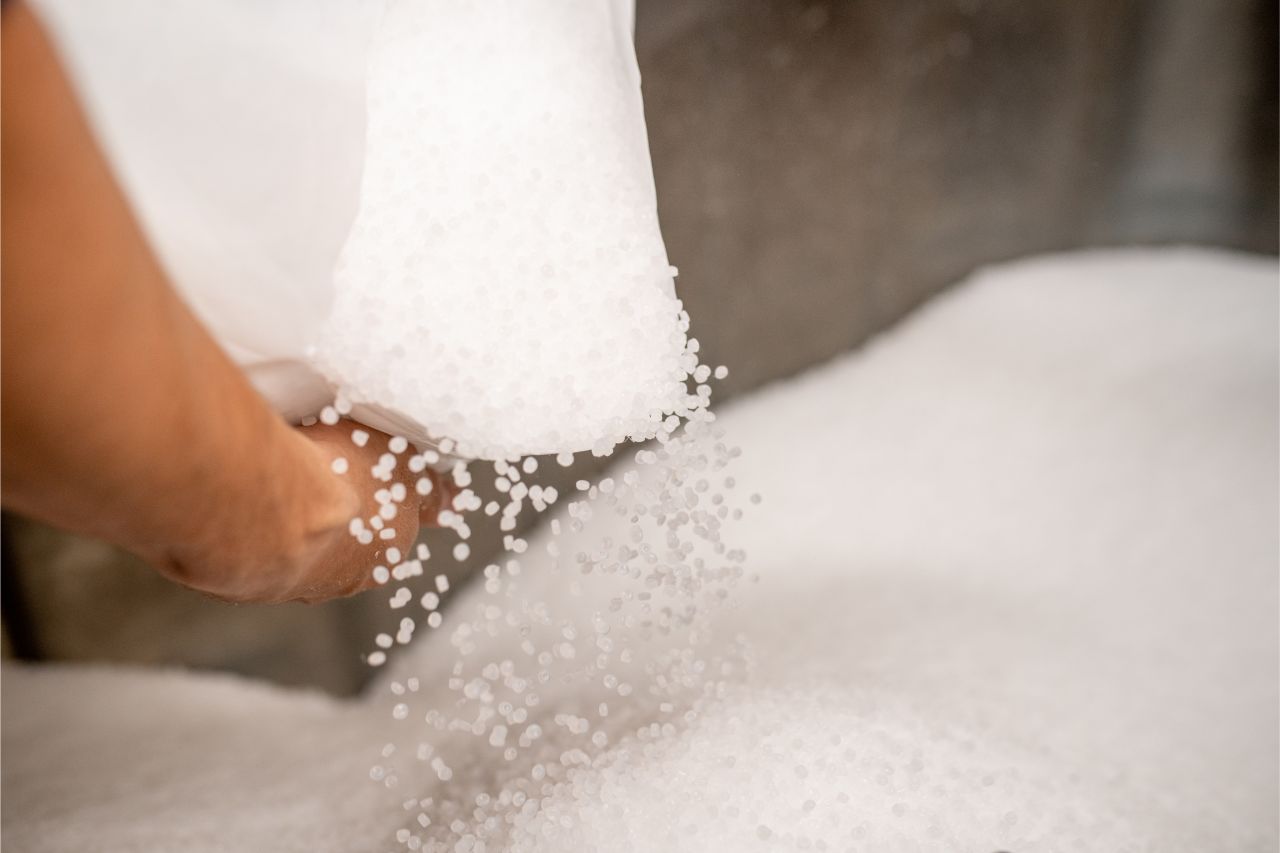April 22, 2021
How To Choose The Best Resin For Injection Molding

Knowing how to choose the best resin for an injection molding project can help determine not only the compatibility of the raw materials, but also the success of the entire process. Depending on where you want the plastic part to be used or assembled with other components, the resin has to meet all the standards that you require. Choosing a resin that may have a high shrinkage rate or poor durability, for example, may end up costing you more on the project. This is because you’ll have to go through the entire process of mold flow analysis, injection molding, and post-processing just to identify if your chosen resin will fit the job.
Many types of resins have surfaced in the industry in the last two decades or so. As different types of plastics are becoming more widely-used in a variety of industries, any business looking to benefit from their properties should know how to select a resin. To add to that, it’s important to keep a few considerations in mind when choosing a plastic — the final appearance, strength, shelf life, lead time, and the like.
In this guide, you’ll learn more about the different steps in choosing the best resin for an injection mold. From identifying the plastic type, to understanding any local or national regulatory requirements, check out how you can come up with the right raw plastic materials. Read on!
In injection molding, raw resin or plastic materials can be classified into two broader families — thermosets and thermoplastics. Thermosets are plastic materials or polymers that do not return to their original shape and form after they’re heated. As the name suggests, these materials permanently “set” after it has been melted and heated.
Thermoplastics on the other hand, can infinitely undergo reheating and molding as required, without any detrimental change to their chemical properties. Thermoplastics generally have a lower melting point — ideal for crafting prototype assembly parts. While thermosetting plastics may be rigid in their conditions, they do however, have a higher structural integrity and can resist higher temperatures due to their high melting points.
Based on the understanding above, thermosetting plastics are excellent in applications where rigid and permanent parts are required. This is because thermoset products are no longer influenced by any added exposure to heat.
Thermoplastics also have a number of benefits — excellent strength rating, lightweight, and cost-effective processing. This makes them ideal for a number of high-volume applications, or where insert molding and overmolding techniques are required.
One downside, with thermoplastics is that they may be prone to warping due to their low melting point. Consider this when choosing from either two types of plastics for your next injection molding.
It’s time to narrow down your resin selection further. After choosing from either thermosets or thermoplastics, you have to understand that different resins can be further classified according to use or function.
This is where you’ll find out about the limitations of thermosets or thermosetting plastics. Although they can be used for injection molding, manufacturers are limited as to the choice. Some thermosets include polyester, polyurethane, epoxy, silicone, polyamide, vinyl ester, and the like. Since all injection molding processes depend on pellet-form resins, thermosets may be ineffective for the job due to the permanent chemical change that occurs after heating.
With this in mind, you might find that thermoplastics are the better choice. These belong into three main sub-categories or families: high-performance resins, engineering resins, or commodity resins.
Commodity thermoplastics are those which are used for everyday production of plastic parts or finished goods. Some examples are polypropylene, polyethylene (HDPE & LDPE), polyvinyl chloride (PVC) or polyester. The other two families — engineering and high-performance — are more expensive to produce, but they can be found in industrial application, military, aerospace, automotives, and the like. ABS alloys, acetal copolymer, acrylic, acrylic + PVC, and other plastic alloys/reinforced plastics are classified under either engineering or high-performance thermoplastics.
Before finalising your resin choice, identity if your intended plastic product needs to comply with regulatory standards.
For example, any plastic to be used in food packaging has to meet the FDA’s Packaging & Food Contact Substances (FCS). This is the organization’s regulating authority to determine if any plastic packaging in contact with food meets the standards outlined therein. This means that you might have to use a resin that has been determined safe for use in any food application (like PET, PVC, LDPE, PP, PS (polystyrene).
There may be other regulations depending on where you intend the plastic to be used. Not only will you have to choose the best resin for the project, but you’ll also have to consider if it will pass such standards.
Most businesses, before they partner with an injection molding firm, start off by understanding how to choose the best resin for injection molding. No injection mold activity should begin without first knowing the different types of resins already available in the market.
Rigid thermosets, for example, may be more suitable for use in various environmental conditions due to their chemical structure. Meanwhile, thermoplastics are popular across injection molding companies because of their versatility, affordability, and functionality.
Once you learn about these, you’ll also have to consider what regulations may be covered by your intended plastic part or finished product. Do they meet FDA standards for example? Are they safe for use by human consumption? — these are just some of the questions that you may need to ask.
Ready to start choosing your own resin? Let Richfields Plastic help you out! Contact us for more information on our injection mold services. You may also click here to learn more about how we can assist you in all your plastic needs.